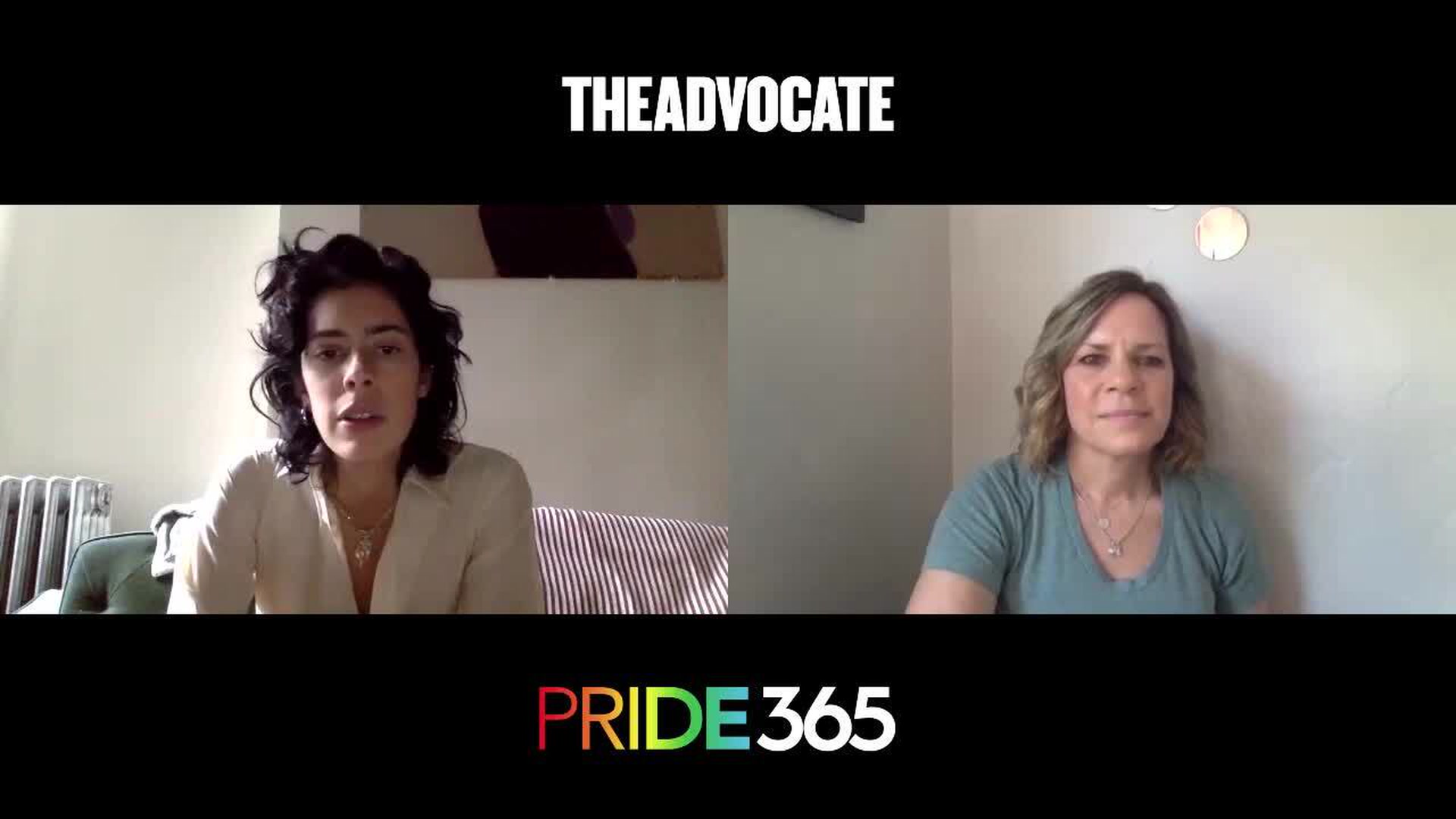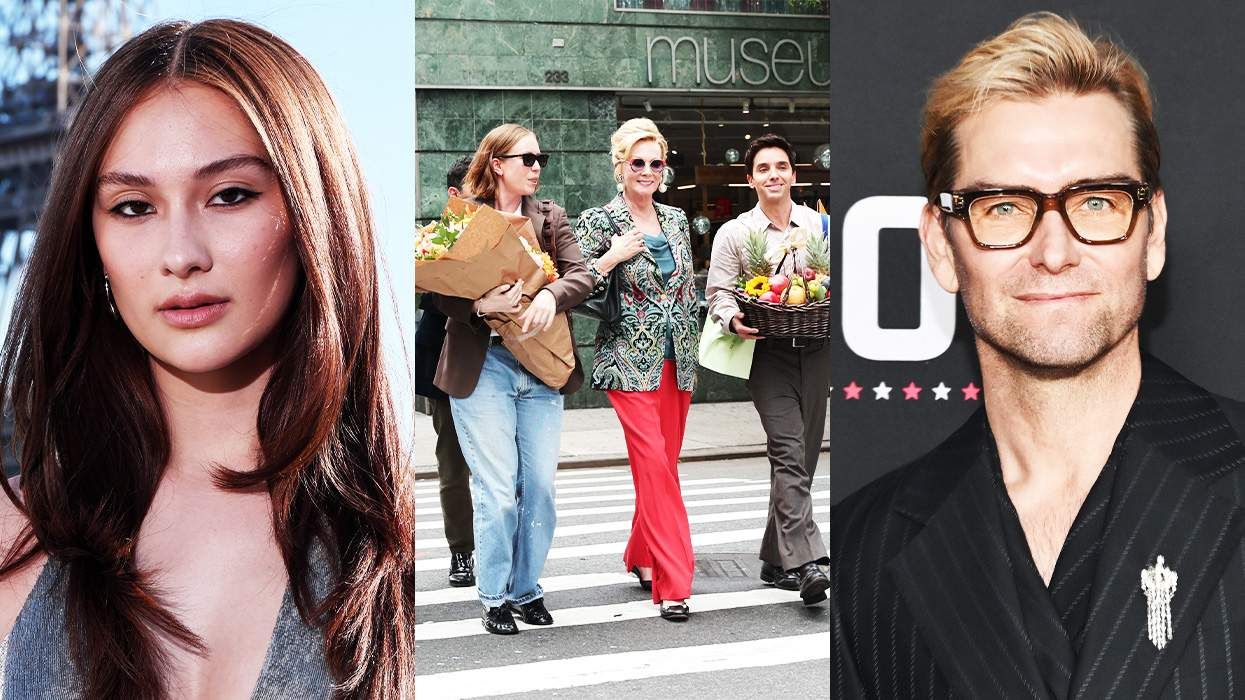The magnetic character Nico first appeared in Vida's second season in a benchmark episode that tackled identity policing among queer, Latinx people. After a six-episode third season, Vida bid farewell on Sunday, just as those home and sheltering in place have begun to discover the series about disparate sisters Emma (Mishel Prada) and Lyn (Melissa Barrera) who return to their home in L.A.'s Boyle Heights neighborhood upon their mother's death.
In a video interview with The Advocate earlier in the season, Roberta Colindrez, who plays Nico, discussed working on creator and showrunner Tanya Saracho's intersectional series that is one of the first to truly depict butch or masculine queer characters. In the series, Nico becomes Emma's love interest and the person who breaks through her steely exterior.
Colindrez also weighed in on the STARZ series's legacy and forging a career working on several of the most unique and timely projects out there, which includes the A League of Their Own pilot she shot with Abbi Jacobson (Broad City) and Darcy Carden (The Good Place).
Colindrez first made a splash as Joan -- the catalyst for lead character Allison's sexual awakening -- in Fun Home on Broadway. She's since appeared in Jill Soloway's I Love Dick, The Deuce, and recently in an episode of Mrs. America, the Cate Blanchett/Rose Byrne-led series about the battle for the ERA.
"I'm lucky to have this career and be queer and be celebrated for it," Colindrez said.

Regarding Vida and the queer identity policing episode, she expounded on how Saracho struck the right balance.
"This is exactly the kind of conversations that are happening in real life where even queers are having really reductive, kind of past-tense conversations about where we are presently," Colindrez said. "We have to be able to call people out and we have to be able to educate people. Tanya's done a really great and really empathetic job of reminding us that we're not all there yet."
"Even the queers aren't all there yet. Even the brown queers aren't all there yet on everything politically and socially," she added.
Vida has led the way on TV in terms of queer/Latinx visibility, but it's also illuminated the lives of butch, masc, and nonbinary queer people. Colindrez hearkened to a scene in the first season that featured nonbinary actor Ser Anzoategui's Eddy, the widow of Emma and Lyn's mom Vidalia, mourning in the bathtub as the camera rises above.
"I truly don't think I've ever seen a butch body like that onscreen before," Colindrez, who was still just a viewer at the time, recalled.
"I wasn't thinking about the political aspects of it," she said. "To me, it was just beautiful because we as a society tend to shrug away images of butch bodies. And for Ser to be brave enough to do that, I thought that was so cool. I grew even more in love with Tanya and her work and her vision, and what I see as her artistic priorities."
As Vida's third season approached, viewers sheltering in place began to discover it late in the game -- too late for it to land another season. Although Colindrez wishes people had found the show earlier in its run, she's glad they did.
"I'm really happy with what we made. I'm always going to be really proud of it," she said.
"If it's one of those things where it takes people 20 years to watch it and be like, 'Wow. Now there's such a prevalence of shows about Latin American experience. Where did it all start? 'If they can look back and pinpoint Vida and discover what a gem it was, then I will be happy."
"It's brave and it's empathetic at the same time, which is a really rare combination," she added. "I hope that Latin American people feel seen by the show, and justly represented. And I hope that other people feel [a] kinship with someone they didn't know they already knew."
















Charlie Kirk DID say stoning gay people was the 'perfect law' — and these other heinous quotes
These are some of his worst comments about LGBTQ+ people made by Charlie Kirk.